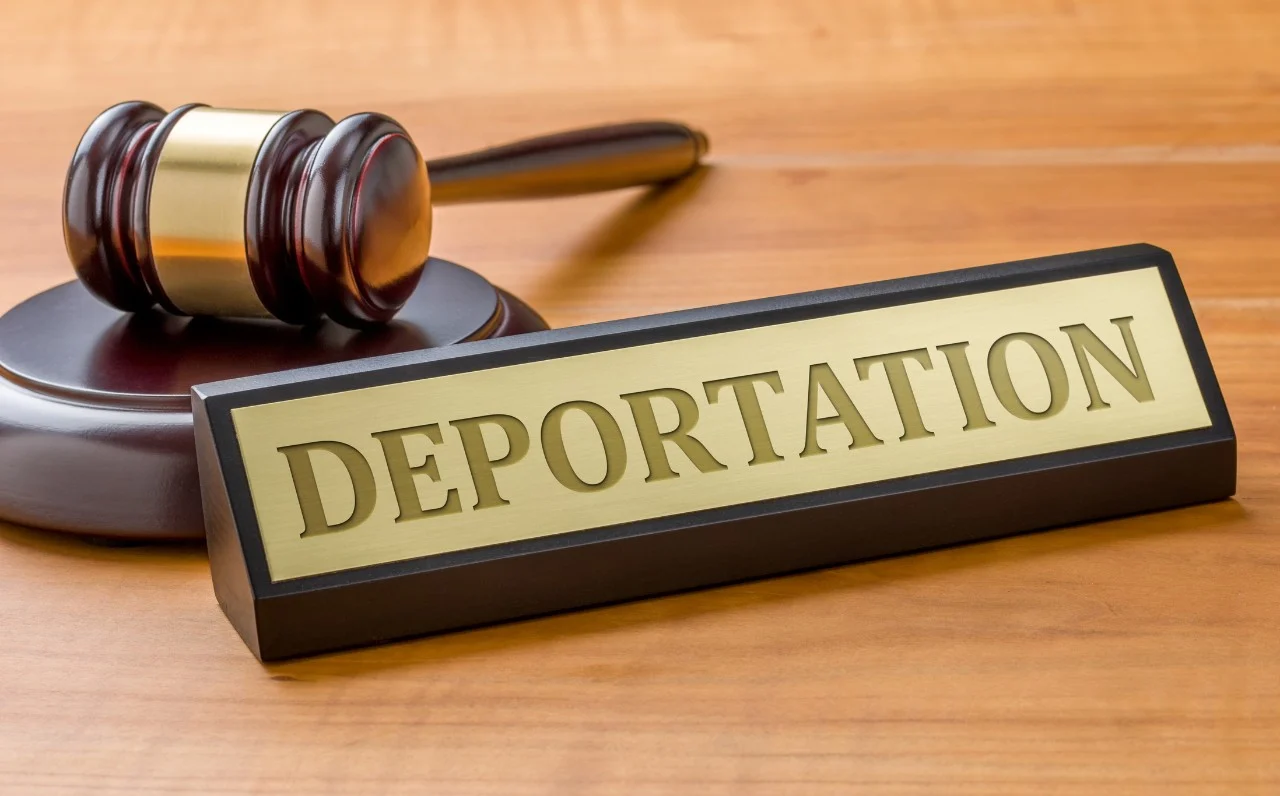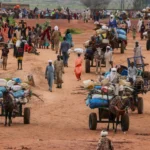A Nigerian man deported from the United States has revealed that he is stranded in Togo after he and five other West Africans were secretly transferred across the border by Ghanaian officers. The man, who requested anonymity for safety reasons, said he was initially deported to Ghana as part of Washington’s immigration crackdown but was later moved to Togo under suspicious circumstances.
According to his account, he and others were held at a military camp in Ghana under harsh conditions and repeatedly appealed for better treatment, healthcare, and access to clean water. Days later, Ghanaian officers allegedly informed them they would be relocated to a hotel for improved accommodation. Instead, the group was driven to the border and taken into Togo through what he described as a “back door” entry point. He alleged that Ghanaian officials bribed local police to allow them through without notifying Togolese authorities.
“They did not take us through the main border, they took us through the back door. They paid the police and then dropped us in Togo,” he explained.
The group, which included three Nigerians and a Liberian, ended up in a hotel in Lomé, the Togolese capital, where they now struggle to survive. Without valid documents or identification, they rely on hotel staff to help them receive financial support from relatives abroad to cover their bills. “We’re just stuck here, trying to survive until our lawyers can intervene,” the Nigerian deportee said.
The deportee’s ordeal highlights the growing controversy around the US government’s “third-country deportation” policy, which has seen West African nationals returned not to their home countries but to other nations in the region. Ghana recently announced it had agreed to accept deportees from the US under this arrangement. Officials in Accra described the decision as an act of “pan-African solidarity” and said no financial incentives were involved. However, opposition lawmakers in Ghana have demanded that the deal be suspended until it undergoes parliamentary approval.
Lawyers representing the deportees argue that their rights were violated. They claim the men were flown from the US in shackles aboard a military plane and that some, including the Nigerian stranded in Lomé, had legal protections in place that should have prevented their deportation. The man says he held a court-ordered safeguard in the US, yet still found himself expelled.
The deportee also expressed fear of returning to Nigeria due to his membership in the Yoruba Self-Determination Movement, an activist group pushing for an independent Yoruba state in southwestern Nigeria. While not officially banned, the movement has faced repression, with dozens of its members previously arrested. He believes that going back to Nigeria would put him at risk of detention and torture.
Compounding his troubles, the man revealed that his deportation has left his family in the United States in crisis. “I have a house in the US where my kids live. How am I supposed to pay the mortgage now? My children cannot see me, and the stress is overwhelming,” he lamented.
Meanwhile, Togolese authorities have yet to comment on the presence of the deportees within their territory. Language barriers also add to the difficulties, as Togo’s official language is French while the deportee only speaks English, making it challenging to navigate daily life.
The case sheds light on the human cost of controversial deportation strategies that place individuals in countries where they have no family ties, legal status, or means of survival. Human rights advocates warn that unless the policy is reviewed, more vulnerable migrants may find themselves abandoned across borders in precarious conditions.
As the situation stands, the Nigerian man and his fellow deportees remain stranded in a Lomé hotel, uncertain of their future and waiting for a legal resolution to what they describe as an unlawful transfer that has left them stateless and exposed.













Leave a comment